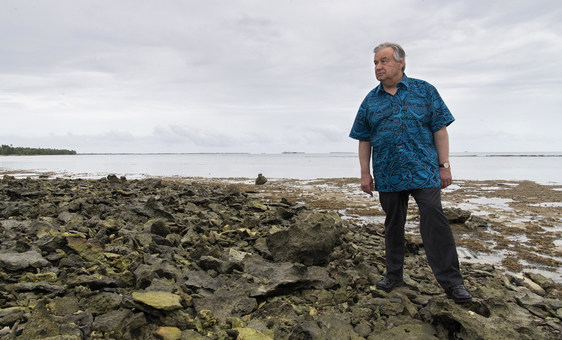Meeting the pledge by developed countries to mobilise at least $100 billion a year to support developing countries in mitigating and adapting to climate change, lagging even before the COVID-19 pandemic, requires urgent action, according to a new report by independent experts released on Friday, December 11, 2020 by the United Nations.

Since economic distress is now acute, and the climate crisis is only getting worse, the report emphasises surpassing $100 billion in 2021 and beyond. It also stresses the sum as a starting point for significantly ramping up climate finance from all sources. This will be imperative to drive strong and sustainable recovery packages, ambitious climate action plans, and accelerated progress towards carbon neutrality and climate-resilient growth.
The new report, titled: “Delivering on the $100 billion climate finance commitment and transforming climate finance”, prepared by an independent expert group, outlines the finance landscape during the pandemic and makes a series of recommendations on meeting and going beyond the $100 billion target, getting more money to flow into the system, and mobilising the financial system at large.
The experts recommend at least doubling grant finance. Grants, a lifeline for vulnerable and poorer countries, have declined to around $12 billion according to 2016-2018 data. A second issue is to increase adaptation finance, still only a small share of overall climate finance. Being able to adapt and build resilience to ever worsening and more frequent climate disruption is a critical challenge for people, communities and countries on the frontlines of the climate crisis.
The UN Secretary-General, António Guterres, recently called on all donors and multilateral development banks to increase the share of adaptation and resilience finance to at least 50 per cent of climate finance support.
The report advocates channeling more climate finance to the least developed countries and small island developing states, many of which have contributed little to greenhouse gas emissions but are already experiencing severe impacts, such as from droughts, floods and rising sea levels. Finally, it recommends that the international community do more to expedite access to climate finance for developing countries, as this is currently a cumbersome process that strains technical and other capacities.
The report further recommends that all financial systems steer investments towards net-zero emissions and resilient development. It calls on all public development banks and the broader development finance system, particularly Multilateral Development Banks, to ensure that their lending portfolios and operations are in line with achieving the goals of the Paris Agreement and Sustainable Development Goals, which will also require mobilising private capital at scale. A growing number of major pension and other investment funds are already using science-based targets and other tools to shift portfolios towards decarbonisation by 2050.
The report stresses the imperative for all countries to phase out fossil fuel subsidies and put an equitable price on carbon.
“I appeal to developed countries to fulfill their long-standing promise to provide $100 billion annually to support developing countries in reaching our shared climate goals,” the UN Secretary-General says. “We are not there yet. This is a matter of equity, fairness, solidarity and enlightened self-interest.”
While climate finance had been increasing before the pandemic, it has not reached the $100 billion-a year-target by the agreed 2020 goal post. Considered the bedrock of international public climate finance, the commitment is meant to work in concert with other sources of finance, including from the private sector.
Experts drew from data and analyses generated by the United Nations Framework Convention on Climate Change, the Organisation for Economic Cooperation and Development, as well as from civil society organisations such as Oxfam, among other sources.
The report found that while the COVID-19 crisis presents an enormous threat, it also offers a one-off, last chance opportunity to restructure economies at the pace and scale that the climate crisis requires by integrating climate action into the economic recovery from COVID-19.
